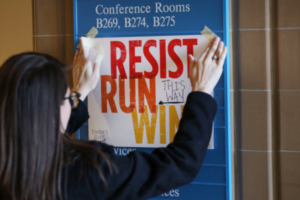Women Are the Force for Democratic Renewal Worldwide
Originally published by Tzili Mor for The Hill
Never before would so many people worldwide heed Bob Marley’s rousing anthem to “Stand up for your rights” — particularly the most basic, central right in a democracy — the right to vote.
With half the world voting in over 80 national elections, 2024 will be the biggest election year in history. While some elections may not be fully free and fair, the voices of over half the populace — the voices of women — might be severely constrained.
Women face barriers to equal and active political participation at every stage of the electoral cycle. Some countries bar women from voting or serving in office altogether. Others curtail women’s access to register to vote for lacking identity documents.
While one billion people worldwide cannot vote because they lack official identity documents, the World Bank estimates that 1 in 2 women in low-income countries does not have an official ID, limiting their access to participate in political life. Married women often face more identity proof requirements than married men when applying for a national ID card. Further, women engaged in unpaid care work — a staggering total of 12.5 billion hours a year — are turned away for inability to pay fees.
Despite these hurdles, in dozens of countries, more women than men tend to turn out to vote.
Denigration and defamation of women, amplified by social media and tech platforms, are perils that carry exponential harm during elections. Women voters encounter violence during elections and political processes. Frequently such violence intends to deter women from civic participation, but there are ways to forecast, monitor and mitigate its impact.
Alarmingly, attacks against citizen observers and electoral officials have been on the rise. In the U.S., women make up nearly 80 percent of election administrators and are at greater risk of gender-based harassment and threats forcing their departure; a liability of serious consequence in a major election year.
Perhaps the top reason women cite for exiting and increasingly never even entering politics is the virulent harassment and vitriol thrown at them. Not for their policies, perspectives or platforms, but for being women, their appearances, their sexuality, their intimate lives and the quality of their parenting. This is a level of abuse their political male peers are mostly shielded from.
